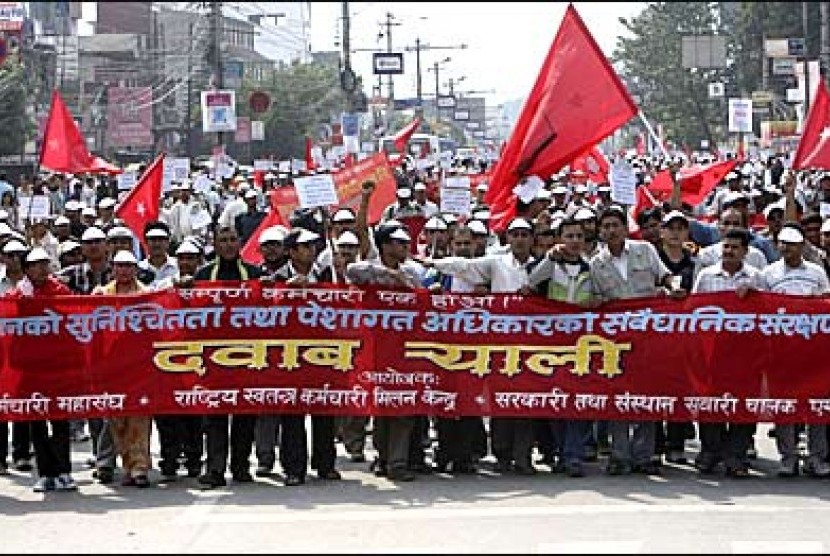REPUBLIKA.CO.ID, KATHMANDU -- Nepal sent in hundreds of police reinforcements Tuesday to a troubled western region as anger flared over the police killing of two demonstrators during a protest against the new constitution.
Schools, shops and factories were closed in the town of Surkhet, the day after the two protesters were killed when police opened fire in a bid to fend off an attack on the home of a local lawmaker.
Fresh demonstrations were also being held by protesters opposed to plans to divide the midwestern region into two provinces under a draft constitution that seeks to restructure Nepal as a federal state.
"Hundreds of security forces have been deployed in Surkhet and surrounding areas in case the situation turns hostile," said national police spokesman Kamal Singh Bam.
Bam said that police had opened fire on Monday after the protests in Surkhet had turned violent.
"After crowds started attacking the house of a local MP and tried to vandalise offices yesterday, we were forced to use firepower and two protesters were killed in the firing," he told AFP.
Under the proposed new constitution, which has been held up for years by political wrangling, Nepal will be divided into six provinces.
An agreement on the borders of the new provinces was struck at the weekend, after April's devastating earthquake helped bring a halt to the seemingly endless bickering between rival parties.
But the proposals have caused consternation in several parts of the country, including in the southern plains and the midwest.
"Our demand for an undivided midwest remains strong," said Tej Bikram Basnet, a teacher who joined the latest protest in Surkhet on Tuesday.
"We want to keep today's protest peaceful and don't want things to get out of hand like yesterday," Basnet added.
Surkhet, located 375 kilometres (230 miles) west of Kathmandu, is the capital of the midwestern region, which includes 15 districts.
Lawmakers began work on a new national constitution in 2008 following a decade-long Maoist insurgency that left an estimated 16,000 people dead and brought down the monarchy.
But parties were unable to reach agreement and the resulting uncertainty left Nepal -- one of the world's poorest countries -- in political limbo.


